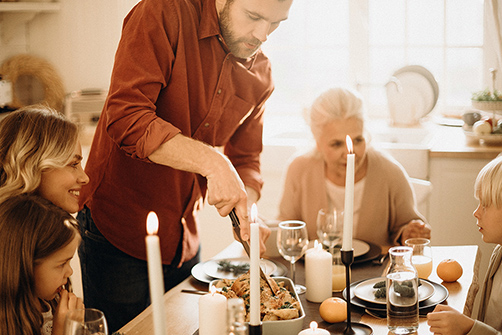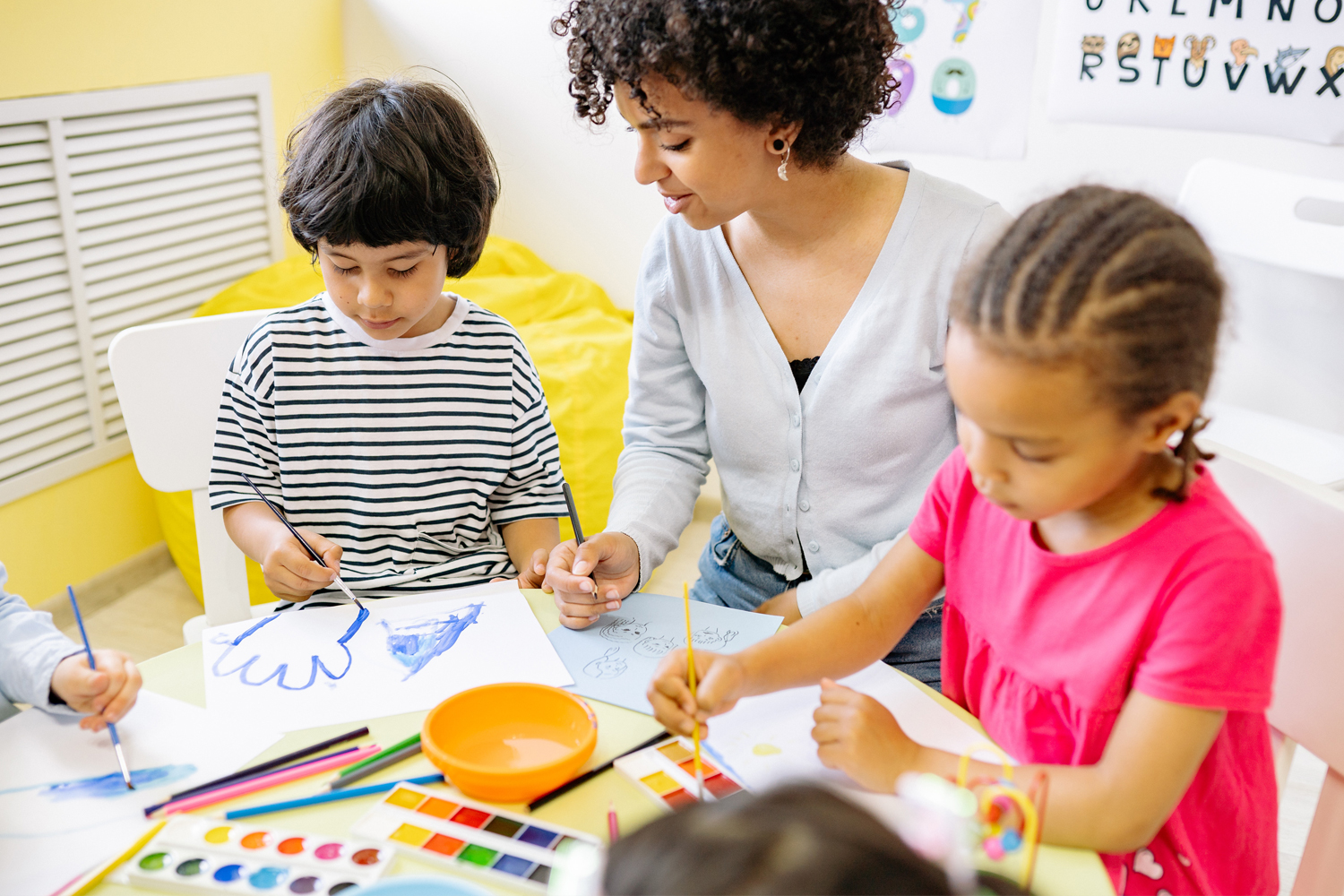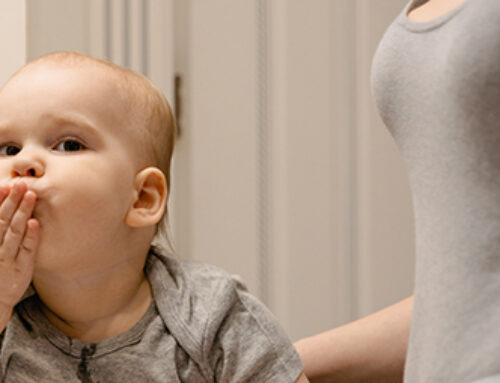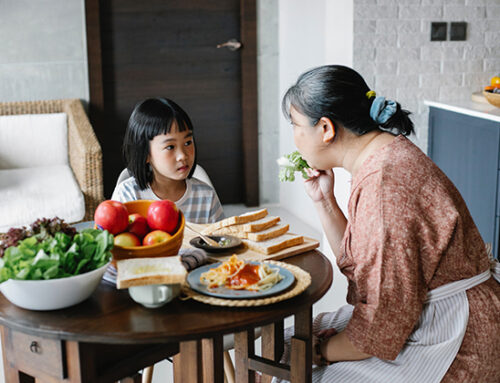On Thanksgiving Day, there are many ways to incorporate language development skills through fun table games! These games can target your child’s expressive language (how your child communicates their wants and needs), receptive language (how your child understands language), and pragmatic language (your child’s social language) skills.
Here’s a list of 3 easy, fun language development games:
1. The “I spy” Game :
While sitting at the Thanksgiving Day table, there are lots of exciting things for your child to look at, including various foods, others’ clothing/accessories, furniture, etc. Play the game by taking turns with your child ‘spying’ things around the room with the phrase “I spy something x”.
- Pragmatic language-Taking Turns: Have your child say “my turn”, “your turn”, or give another person or family member a turn with, “X, it is your turn”.
- Expressive Language-Expanding Their Sentences: Have your child put all their words together by tapping the table or clapping their hands when saying, “I spy something x”.
- Receptive Language-Identifying (Finding) The Item: Have your child try to find the item you are describing. If they are having trouble, help them by giving clues such as “it is something you eat/you wear, etc.)” or “it is something close/far from you”.

2. The “Who” Game:
Why not play the “Who” game while sitting with all of your family and friends at the Thanksgiving Day table! Play the game by taking turns with your family and friends asking the table “Who is wearing/eating x?” and saying “Yes, I am” or “No, I’m not”.
- Pragmatic language-Engagement: Help your child sustain engagement during the game by seeing whose turn is next, helping you answer the question, or guessing what they might ask.
- Expressive Language-Asking a Question: Help your child ask an appropriate question or find something to ask about. If they are having trouble, you can help them pick a food or clothing item first, then say the question together.
- Receptive Language-Answering “Yes/No” Factual Questions: Help your child answer the question correctly. Are they really wearing x or eating x? Show or point to the foods on the plate or the clothing item to help them answer “yes/no” correctly.
3. “Tell Me About That Food” Game:
There is so much food on Thanksgiving Day that can be described in so many different ways! Play the game by taking turns with your child to describe the food around you. For example: “Mashed Potatoes are yummy, soft, and white” or “Tell me about mashed potatoes…what color are they? How do they smell?”.
- Pragmatic Language-Joint Attention: Help your child have joint attention with this game by following your lead when describing food. Have them look at the food or point to the food with you.
- Expressive Language-Expanding Vocabulary: Help your child expand their vocabulary by pairing these vocabulary words with the food item and making a whole phrase or sentence. For example, “Broccoli is green. Tell me more about Broccoli. Broccoli is…”
- Receptive Language-Answering ‘WH’ Questions: Help your child answer various “wh” questions. First, ask the question. If they are having trouble, give them choices, then give them the words. For example “what color is bread?” “brown or purple” “Let’s say it together… Bread is brown.”
Keep building all aspects of your child’s language on Thanksgiving Day while playing these easy, fun games at the table!

Blue Bird Day fosters socialization, sensory regulation, and pre-academic learning in children ages 2-7 years in therapeutic rotations that simulate preschool and kindergarten settings. Our compassionate therapists practice a relationship-based and family-centered approach, provide parent training, and collaborate on goals and individualized intensive treatment plans for your child.
We believe in a collaborative and multi-disciplinary team approach to therapy. A team of occupational therapists, speech-language pathologists, dietitians, developmental therapists, behavioral therapists, physical therapists, and therapeutic assistants are created for each child to ensure child and family are fully supported and the best possible results are achieved.
Options for individualized, group and virtual therapy sessions are available as well.
Want to learn more or you have a specific question? Feel free to connect with us here!



